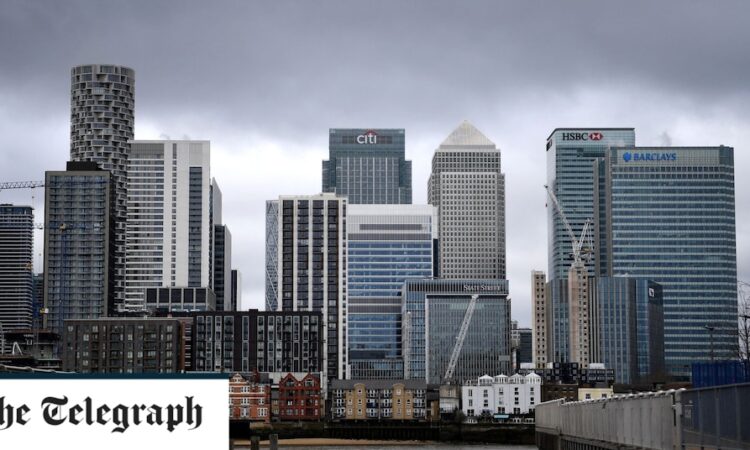
There have also been unintended consequences. Britain’s biggest banks, including Barclays and HSBC used huge amounts of money they were unable to move into their international divisions to make mortgages cheaper before inflation took off, benefiting customers but also hurting small rival lenders in the process.
Goldman Sachs also stopped savers from pouring money into Marcus, its retail division, after deposits approached the £25bn limit requiring banks to create a ringfence.
While the Skeoch review recommended loosening some ringfencing rules, Sir John warns regulators not to repeat the mistakes of the past.
“It would be wrong to trash the reforms that we’ve had. We mustn’t go backwards. We need to go further forwards,” he says.
“Let’s build more equity capital. Let’s have more rigorous and transparent stress tests. And let’s take a very hard look at whether excessive reliance has been placed on resolution which didn’t do brilliantly last month, and its place in the global regulatory architecture.”
Martin Taylor, another member of the Independent Commission of Banking and the former chief executive of Barclays, says that while post-crisis reforms should not be watered down, the solution to the recent turmoil should not automatically be more regulation.
“If you make the banks carry too much capital that will indeed put the cost of banking up,” he says.
“And so the trick is to try to find the sweet spot where the banks are 99pc safe but aren’t so over capitalised that they can’t run profitably. And that’s been really the challenge for policymakers in the years since the financial crisis.”
Regulators are also examining whether to increase deposit insurance, which Taylor supports. “I don’t believe that all deposits should be insured. But I do believe that there should be higher insurance than we have at the moment. In the States, it’s a quarter of a million dollars, which would suggest something like £200,000. So it could be doubled, and the banks will have to pay for that.”
The FSCS already has a provision for “temporary high balances” such as when people sell their homes, inherit money or receive a divorce settlement, and the Bank of England is examining whether to extend some of these exemptions to smaller businesses and their working capital.
Sir John says protecting the taxpayer must be at the heart of any further reform.
“I’d like taxpayer to be a long, long, long way away from the hook,” he says.
“In these latest cases involving SVB and Credit Suisse, we haven’t had explicit bailouts but you have had the Swiss authorities putting up guarantees and you’ve had the Fed with their very generous lending program. He, like Bailey, believes there is more work to do on the global stage.
“The taxpayer is much closer to the hook than they were supposed to be. And that’s in Switzerland and the US, which are generally thought to be fairly well regulated environments.”
More than a decade on from the financial crisis, the economic costs of reform are clear.
But if a true banking panic takes hold, it is far from certain that all this effort will prevent another wave of costly bailouts.






